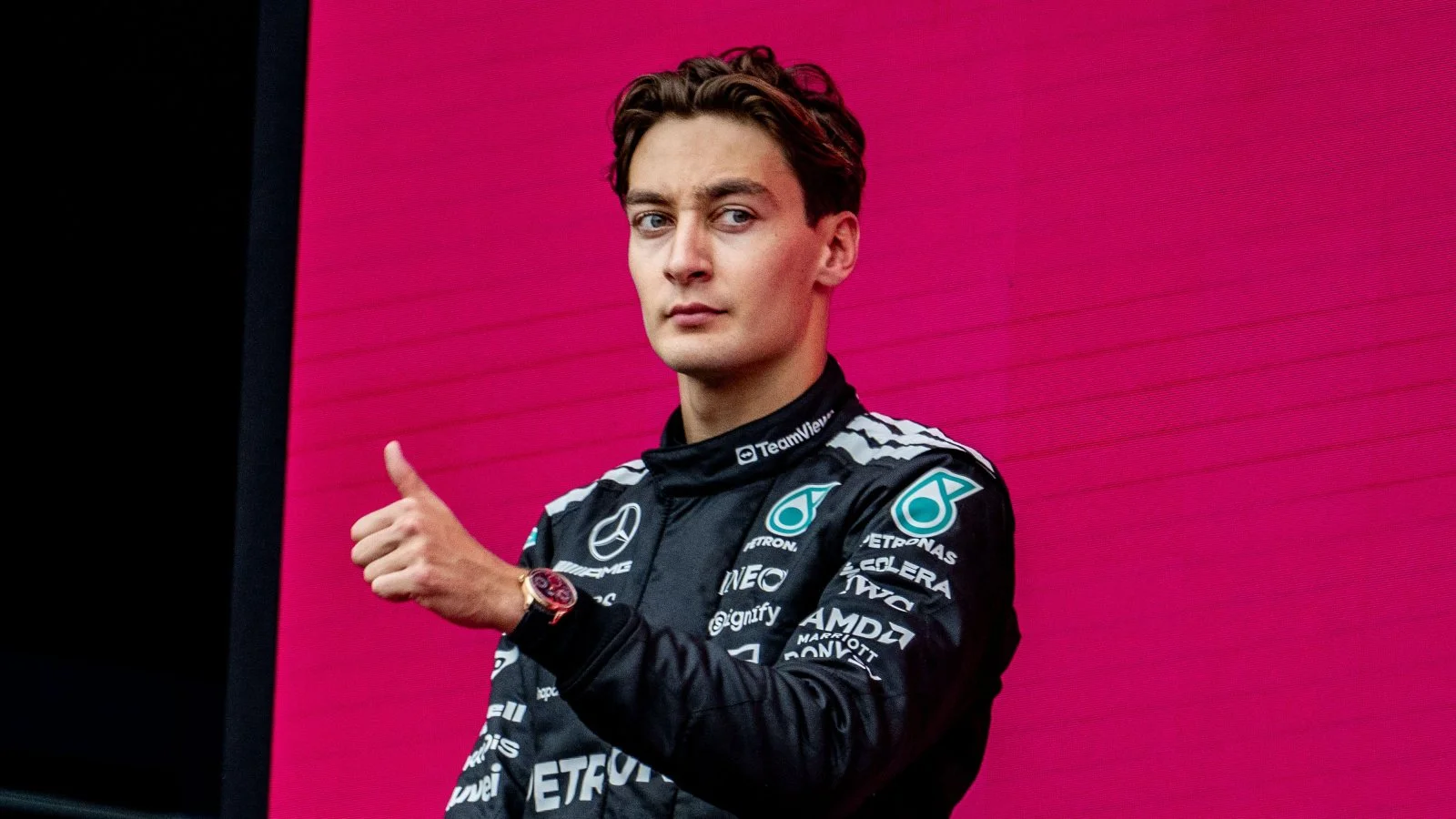George Russell addressed concerns about driver safety following Max Verstappen’s recent victory at the Nürburgring, emphasizing the importance of pursuing what drivers enjoy despite inherent risks. Speaking ahead of the Singapore Grand Prix, Russell highlighted that risk is part of life and that drivers must be free to follow their passions both on and off the Formula 1 track.
George Russell Responds to Safety Worries Over Verstappen’s Nürburgring Race
Last weekend, Max Verstappen traded his Formula 1 car for a GT3 Ferrari to compete at the renowned Nürburgring, where he won the grueling four-hour event on his debut. Despite the impressive result, some colleagues and observers questioned whether competing on such a demanding and hazardous circuit was unnecessarily risky. The discussion brought up the example of Robert Kubica, who suffered life-threatening injuries during a rally in 2011, underscoring the dangers motorsport athletes face outside F1.
In response, Russell stressed that enjoying life and handling risks is essential for drivers.
“I think you have to do what you enjoy in life,”
he said.
“And there’s a risk in everything. We can slip on the paddle court, and break a leg as an example, or you fall down the stairs in the morning.”
He noted that while certain activities carry higher risks, such as rallying compared to racing a GT3 car on a track, drivers must still be empowered to follow what they love.
Russell further added,
“A lot of drivers go skiing as well; you can’t wrap yourself in bubble wrap.”
These comments suggest a balanced view that while safety is paramount, a life devoid of risk is unrealistic, especially for professional racers. This stance came during a press conference in Singapore where Russell was joined by teammates Lando Norris and Esteban Ocon, both supportive of Verstappen’s choice to compete in different racing formats.

Support from Norris and Ocon on Verstappen’s Pursuits Beyond F1
Lando Norris praised Verstappen for having the freedom to explore other motorsport disciplines, attributing this to Verstappen’s status as a four-time World Champion.
“It’s cool. It’s nice he can go and do what he wants,”
Norris said.
“I think after you win four World Championships, you have a bit more right to just go and choose what you want to do. Everyone knows how much Max loves doing all those things. And it’s nice that he goes to do something else that he enjoys, but you can do what you want.”
Esteban Ocon also reflected positively on Verstappen’s win and the challenges that competing on the Nordschleife presents. Ocon has himself studied the circuit extensively, including through simulation via Gran Turismo and real-life car testing. He commented,
“I watched some of it. Obviously, was a very long race. I’ve done some testing and developing on some cars on the Nordschleife last year, because I wanted to learn the track and have a feel for myself. I’ve been racing this track on Gran Turismo for years and years, and to have seen Max going there and winning the race was obviously incredible.”
Ocon recognized the busy demands on Verstappen’s time, especially given his ongoing fight for another world championship, noting that Verstappen’s achievements provide him more freedom in his decisions.
“We have a very busy schedule. He’s fighting for a World Championship potentially, and he’s won already four, which helps in his decision of going or not. But if I was in his position, I would probably do the same.”
Verstappen’s Versatility and Russell’s Reflections on Personal Passions
Russell acknowledged Verstappen’s exceptional talent across racing disciplines, noting how Verstappen’s ability to excel in multiple series underscores his greatness.
“I don’t know how much it adds to your greatness or not, but the fact he can go into any series and be probably the best, I think, does show how good he is and how great he is.”
He expressed admiration for Verstappen’s career, saying,
“I think he’s born to be and will forever be one of the best ever, and if not the best in Formula 1. So I think for anyone to have a chance of going up against him and beating him is pretty slim at times.”
Looking ahead, Russell admitted uncertainty about his own future beyond Formula 1, sharing a personal desire to eventually pursue other interests.
“I don’t know about my future still,”
he said.
“I still see a time when I’ll just want to leave Formula 1 and go and do other things, go play golf and have some fun elsewhere, but I respect a lot what Max does and I respect Max a lot, like I’ve always said.”
Indicating his own ambitions, he mentioned,
“I love the Nordschleife, so that is probably another place I would love to go and try, at one point.”
Risks and Rewards: Why Drivers Embrace Danger Beyond the Track
The debate sparked by Verstappen’s participation in the Nürburgring event highlights the delicate balance between risk and personal fulfillment for motorsport professionals. While racing outside the protective confines of F1 cars and circuits presents dangers, as the Kubica incident reminds us, it also represents an essential outlet for drivers to challenge themselves and enjoy the broader world of motorsport.
George Russell’s comments encapsulate a widespread understanding among drivers that risk cannot be entirely eliminated. Instead, the focus remains on managing those risks while maintaining passion and enthusiasm for driving and life experiences. Verstappen’s example, backed by Norris and Ocon’s support, signals a culture in Formula 1 where success brings choices—allowing champions to explore varied interests without compromising their commitment to the sport.
As Verstappen prepares to return to the F1 season in Singapore, conversations about driver safety and freedom are likely to continue, especially as more racers take on challenges beyond Formula 1. The ongoing championship battle and drivers’ openness to new experiences underscore the intense, serious, and vigilant nature of modern racing, where balancing ambition with well-being remains paramount.
